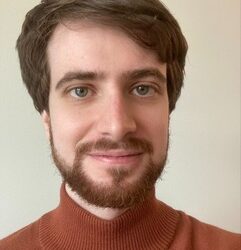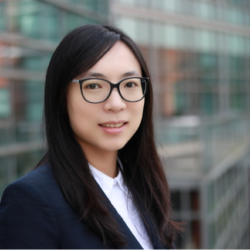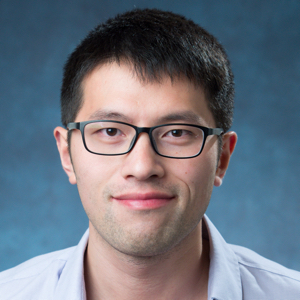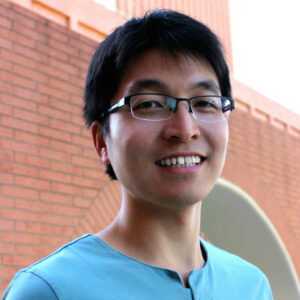Artificial Intelligence
Generative AI
Large Language Models
Deep Learning
Deep Architectures and Networks
Natural Language Processing
Faculty
-

James Evans
Max Palevsky Professor of Sociology; Director, Knowledge Lab -

Ari Holtzman
Assistant Professor of Computer Science and Data Science -

Mina Lee
Assistant Professor of Computer Science and Data Science -

Bo Li
Associate Professor of Computer Science and Data Science -

Sendhil Mullainathan
Roman Family University Professor of Computation and Behavioral Science, Chicago Booth -

Chenhao Tan
Assistant Professor of Computer Science and Data Science -

Victor Veitch
Assistant Professor of Statistics and Data Science -

Rebecca Willett
Faculty Director of AI, Data Science Institute; Professor, Statistics, Computer Science, and the College -

Haifeng Xu
Assistant Professor of Computer Science and Data Science
My research focuses on the collective system of thinking and knowing, ranging from the distribution of attention and intuition, the origin of ideas and shared habits of reasoning to processes of agreement (and dispute), accumulation of certainty (and doubt), and the texture—novelty, ambiguity, topology—of understanding. I am especially interested in innovation—how new ideas and practices emerge—and the role that social and technical institutions (e.g., the Internet, markets, collaborations) play in collective cognition and discovery. Much of my work has focused on areas of modern science and technology, but I am also interested in other domains of knowledge—news, law, religion, gossip, hunches, machine and historical modes of thinking and knowing. I support the creation of novel observatories for human understanding and action through crowd sourcing, information extraction from text and images, and the use of distributed sensors (e.g., RFID tags, cell phones). I use machine learning, generative modeling, social and semantic network representations to explore knowledge processes, scale up interpretive and field-methods, and create alternatives to current discovery regimes.
My research has been supported by the National Science Foundation, the National Institutes of Health, the Air Force office of Science Research, and many philanthropic sources, and has been published in Nature, Science, Proceedings of the National Academy of Science, American Journal of Sociology, American Sociological Review, Social Studies of Science, Research Policy, Critical Theory, Administrative Science Quarterly, and other outlets. My work has been featured in the Economist, Atlantic Monthly, Wired, NPR, BBC, El País, CNN, Le Monde, and many other outlets.
At Chicago, I am Director of Knowledge Lab, which has collaborative, granting and employment opportunities, as well as ongoing seminars. I also founded and now direct on the Computational Social Science program at Chicago, and sponsor an associated Computational Social Science workshop. I teach courses in augmented intelligence, the history of modern science, science studies, computational content analysis, and Internet and Society. Before Chicago, I received my doctorate in sociology from Stanford University, served as a research associate in the Negotiation, Organizations, and Markets group at Harvard Business School, started a private high school focused on project-based arts education, and completed a B. A. in Anthropology at Brigham Young University.
Ari is an incoming Assistant Professor of Computer Science and Data Science, starting July 2024.
His research has focused broadly on generative models of text: how we can use them and how can we understand them better. His research interests have spanned everything from dialogue, including winning the first Amazon Alexa Prize in 2017, to fundamental research on text generation, such as proposing Nucleus Sampling, a decoding algorithm used broadly in deployed systems such as the OpenAI API. With the new wave of powerful generative models being continually released, Ari has argued for using the lens of Complex Systems to understand generative models of human media, suggesting that a lack of precise behavioral vocabulary to describe what language models are doing is the bottleneck to explaining how language models are capable of such impressive performance on a range of tasks. He completed his PhD in Computer Science at the University of Washington studying “Interpretation Errors” in how we understand generative models after an interdisciplinary degree at NYU combining Computer Science and the Philosophy of Language.
Mina Lee is an incoming Assistant Professor of Computer Science and Data Science for the Summer of 2024.
Her research goal is to design and evaluate language models to enhance our productivity and creativity and understand how these models change the way we write. She has built various writing assistants, including an autocomplete system, a contextual thesaurus system, and a creative story-writing system. In addition, she has developed a new framework to evaluate language models based on their ability to interact with humans and augment human capabilities. She was named one of MIT Technology Review’s Korean Innovators under 35 in 2022, and her work has been published in top-tier venues in natural language processing (e.g., ACL and NAACL), machine learning (e.g., NeurIPS), and human-computer interaction (e.g., CHI). Her recent work on human-AI collaborative writing received an Honorable Mention Award at CHI 2022 and was featured in various media outlets, including The Economist. Mina received her PhD from Stanford University in 2023.
Bo is an Associate Professor in the Computer Science Department and Data Science Institute at UChicago.
Bo’s research addresses trustworthy machine learning from both theoretical and practical aspects and aims to enable reliable machine learning algorithms and systems in the real world, such as safe autonomous vehicles and federated (distributed) learning. She focuses on three interconnected aspects: robustness, privacy, generalization, and their underlying connections.
Bo received her Ph.D. in Computer Science from Vanderbilt University in 2016. She was a Postdoctoral Researcher at UC Berkeley 2017-2018 (working with Prof. Dawn Song) and joined the faculty at UIUC in 2018.
She been recognized by a long list of notable awards and fellowships for young faculty. She is a Sloan Fellow, MIT Technology Review TR-35 innovator, and recipient of the IJCAI Computers and Thought Award, NSF CAREER, Intel Rising Star Faculty award, Symantec Research Labs Fellowship, Rising Stars in EECS, Research Awards from Amazon/Facebook/Google, and best paper awards at multiple top machine learning and security conferences. Her research has been featured by major publications and media outlets such as Nature, Wired, New York Times, Fortune, and is on display at the Science Museum in London.
Sendhil Mullainathan is the Roman Family University Professor of Computation and Behavioral Science at Chicago Booth. His latest research is on computational medicine—applying machine learning and other data science tools to produce biomedical insights. In past work he has combined insights from behavioral science with empirical methods—experiments, causal inference tools, and machine learning—to study social problems such as discrimination and poverty. He currently teaches a course on Artificial Intelligence. Outside of research, he co-founded a non-profit to apply behavioral science (ideas42), a center to promote the use of randomized control trials in development (the Abdul Latif Jameel Poverty Action Lab), has worked in government in various roles, and currently serves on the board of the MacArthur Foundation board. He is also a regular contributor to the New York Times.
Chenhao Tan is an assistant professor at the Department of Computer Science and the UChicago Data Science Institute. His main research interests include language and social dynamics, human-centered machine learning, and multi-community engagement. He is also broadly interested in computational social science, natural language processing, and artificial intelligence.
I am an assistant professor of Statistics and Data Science at the University of Chicago and a research scientist at Google Cambridge. My recent work revolves around the intersection of machine learning and causal inference, as well as the design and evaluation of safe and credible AI systems. Other noteable areas of interests include network data, and the foundations of learning and statistical inference.
I was previously a Distinguished Postdoctoral Researcher in the department of statistics at Columbia University, where I worked with the groups of David Blei and Peter Orbanz. I completed my Ph.D. in statistics at the University of Toronto, where I was advised by Daniel Roy. In a previous life, I worked on quantum computing at the University of Waterloo. I won a number of awards, including the Pierre Robillard award for best statistics thesis in Canada.
Rebecca Willett is a Professor of Statistics and Computer Science at the University of Chicago. She completed her PhD in Electrical and Computer Engineering at Rice University in 2005 and was an Assistant then tenured Associate Professor of Electrical and Computer Engineering at Duke University from 2005 to 2013. She was an Associate Professor of Electrical and Computer Engineering, Harvey D. Spangler Faculty Scholar, and Fellow of the Wisconsin Institutes for Discovery at the University of Wisconsin-Madison from 2013 to 2018. Prof. Willett received the National Science Foundation CAREER Award in 2007, was a member of the DARPA Computer Science Study Group 2007-2011, and received an Air Force Office of Scientific Research Young Investigator Program award in 2010. Prof. Willett has also held visiting researcher positions at the Institute for Pure and Applied Mathematics at UCLA in 2004, the University of Wisconsin-Madison 2003-2005, the French National Institute for Research in Computer Science and Control (INRIA) in 2003, and the Applied Science Research and Development Laboratory at GE Medical Systems (now GE Healthcare) in 2002. Her research interests include network and imaging science with applications in medical imaging, wireless sensor networks, astronomy, and social networks. She is also an instructor for FEMMES (Females Excelling More in Math Engineering and Science; news article here) and a local exhibit leader for Sally Ride Festivals. She was a recipient of the National Science Foundation Graduate Research Fellowship, the Rice University Presidential Scholarship, the Society of Women Engineers Caterpillar Scholarship, and the Angier B. Duke Memorial Scholarship.
Haifeng Xu is an assistant professor in the Department of Computer Science and the Data Science Institute at UChicago. He directs the Strategic IntelliGence for Machine Agents (SIGMA) research lab which focuses on designing algorithms/systems that can effectively elicit, process and exploit information, particularly in strategic environments. Haifeng has published more than 55 publications at leading venues on computational economics, machine learning and theoretical computer science, such as EC, ICML, NeurIPS, STOC and SODA. His research has been recognized by multiple awards, including the Google Faculty Research Award, ACM SIGecom Dissertation Award (honorable mention), IFAAMAS Victor Lesser Distinguished Dissertation Award (runner-up), Google PhD fellowship, and multiple best paper awards.
The following research themes are the recent focus of our research lab. Please refer to our lab’s website for more details.
- The economics of data/information, including selling, acquiring, and exploiting information
- Machine learning in multi-agent setups under information asymmetry, incentive conflicts, and deception
- Resource allocation in adversarial domains, with applications to security and privacy protection